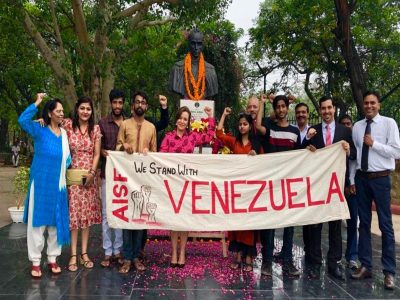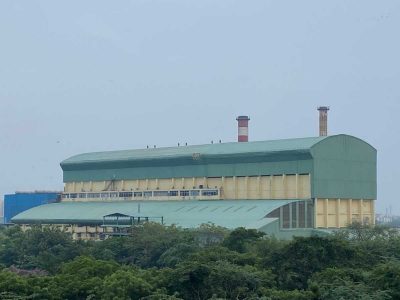“See the pipeline that connects to our water system. It is traversing a sewer. We requested that it be changed or at least covered, but that request has also gone unanswered. Tell me if there is ever a leak in the pipe, will we have to drink water that contains sewer faeces,” laments Bala, 64 when asked about whether the living conditions have improved in the last 48 years in Delhi’s forgotten Sanjay Colony.
“I work as a labourer, and the highest that I get is Rs 600 a day, which is just not enough. There are days when there is no electricity for weeks. I’m living in a broken house. Does the government have no responsibilities towards us? We are paying electricity bills, and we are voting, but still, we are treated like outsiders,” asks Bala.
“We’re living in a place where the monkeys have created havoc. As soon as the evening sets in, you can’t leave your house unsupervised, but I don’t even have the money to cover my house. I get three kilos of wheat from my ration card. Who can survive one month on three kilos of grains? My family gets nine kilos of grains, which we have to sustain for the whole month.”
Also read: No water in this locality on World Water Day
“My kids, some of whom are looking for jobs, keep wandering around, and I don’t even have the liberty of staying at home and taking care of the children. My husband also goes for work to Delhi. We are six members, somehow making ends meet. Look at the pile of wood stocked here. It’s because we can’t afford to keep up with the ever-rising cost of gas cylinders. Cost of basic amenities are increasing day by day, but salary increments are way too small and come after such a long period of time that we have no idea how we’re going to manage,” concludes Bala.
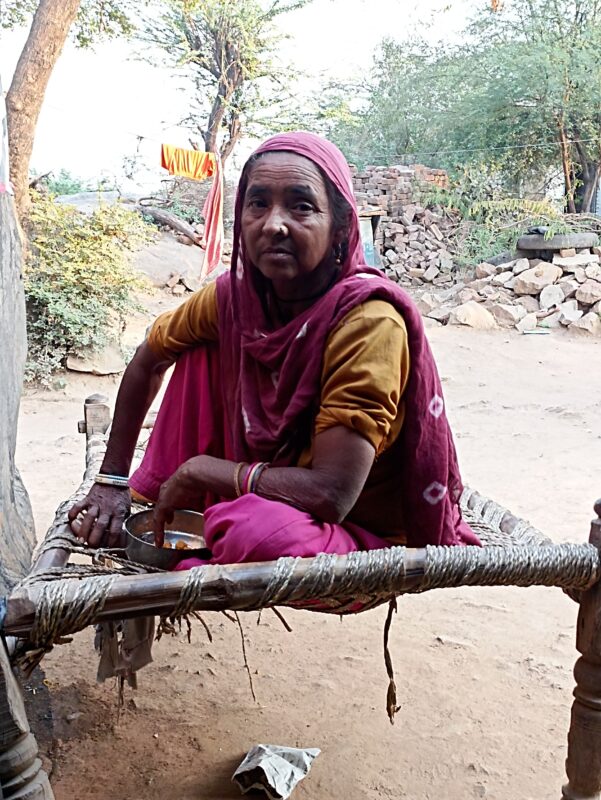
Sanjay Colony is one of Delhi’s most underdeveloped neighbourhoods and is located far from the NCR’s bustle. From Chhattarpur metro station, a 45-minute ride takes you through a brief section of forest to this location. When you arrive, you will see a neighbourhood of Pakistani migrants known as “ood” in a section of Bhatti Mines now referred to as the “Pakistani Mohalla”.
On the recommendation of Sanjay Gandhi, they received this land from the Indira Gandhi government for settlement in the year 1975 and began working in the Bhatti mines to earn a livelihood.
However, this settlement colony has been neglected and is completely devoid of even basic facilities. Because of environmental concerns, the mines have been closed, and there are no alternative opportunities for the current generation, while the next generation has no conducive environment for learning and growth.
The area is quite slow-paced, and the colony seemed unusually quiet even as evening approached. Humans are reactive, whereas monkeys are proactive.
The neighbourhood is mostly made up of unfinished houses, broken roads, a few grocery stores, and piles of broken wood in every house that can be used to cook food. The only time there is hustle and bustle in the colony, according to the residents, is in the morning when people gather in large numbers to wait at the bus stop for labour work and travel up to 50 kilometres in search of daily wages.
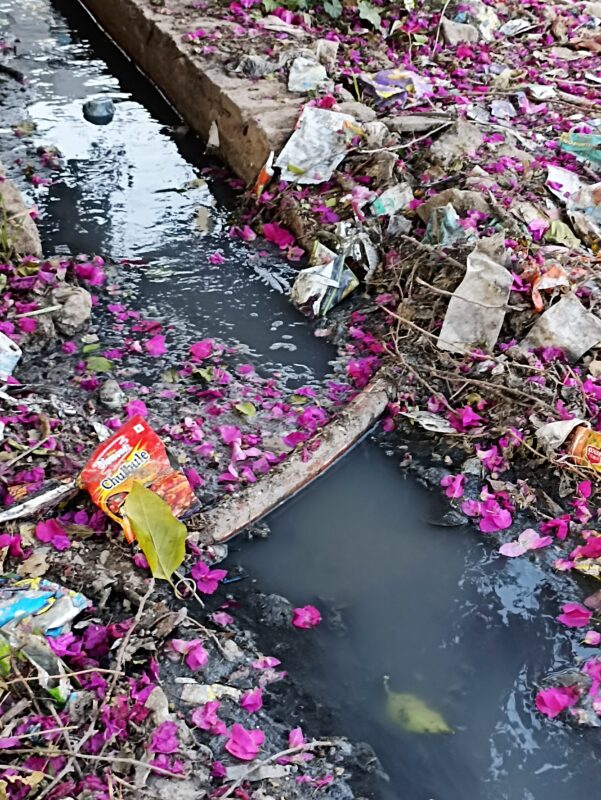
Over the years, the colony has been neglected by everyone. It’s like we’re left on our own, says Sunil, 68 who’s been living here since the settlement was made.
“I’ve lived here my entire life and raised another generation, but the quality of life has remained sub-par. There has been no significant development, and there are no job opportunities. We sometimes feel as if the country still hasn’t accepted us.”
Sunil further adds, “We hear on news channels that there are multiple schemes for the upliftment of the poor and downtrodden but nothing for us. It’s as if we’ve been abandoned, and if that’s the case, please tell us clearly. Don’t just come with a straight face during election season, give us false hopes of a better life, and then disappear. Just leave us alone and stop playing with our emotions and mocking our conditions.”
Sunil’s son Arun, 36, who drives an auto rickshaw overheard the conversation and joined in saying there’s a proper lack of industrialisation in this area which can provide us more jobs and we don’t have to wander far ahead.
Arun goes on to say, “I’m an autorickshaw driver, and to get a ride, I have to travel at least 15 kilometres from here and back, and there are days when I don’t get many customers. Then I have to consider whether I’ll have enough money to return home.
“Iss tarah se to hum jo kamaenge wo saara kiraye me hi chala jaega (most of our earnings will be spent going to work and coming back only). I have a family of seven people that I have to look after, and the best that I’ve ever earned in my life is Rs 25,000 — never more than that.
“You tell me, is it possible to sustain a family of seven members in 20,000?” asks Arun.
He goes on to say that the way things are here, “I’m worried that we’ll have to introduce our younger generation to these kinds of work only because there’s no scope for them even after sending them to school and paying their tuition.”
“I sometimes wonder, but after that, what are my kids going to do after 12th grade? Will they ever work in big companies like the other kids do or whether they’ll ever be able to become managers or general managers, and the answer is no, which is really frightening?”
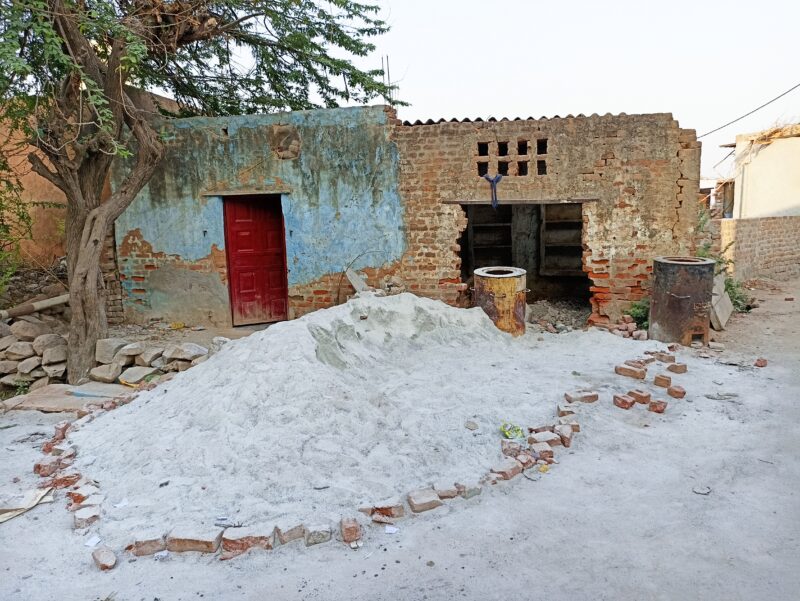
The Sanjay Colony recently made headlines when two kids stabbed an 18-year-old Harish to snatch his phone. While these kinds of instances put the area in a negative light, residents say it’s because of lack of resources, illiteracy, poverty and unemployment.”
Ravi Singh, 22, tells Patriot there are a lot of youngsters who are unemployed in this area even after clearing school, and then with nothing to do at home a lot of youngsters get into drug and alcohol habits which leads to incidents like these sometimes.
“I myself had tried for a job as a delivery executive in the Amazon shopping company and was selected as well but I couldn’t arrange a bike back then because of which I lost the job. Now I am working as a labourer on a farm for which I get Rs 300 a day. In that too, there’s no guarantee of regular work. I have to sit unemployed for months.
“I have no idea what to do and how to improve my life so if any mishap happens what should I do? We don’t have proper schools here. Ek toota-phoota school hai waha bhi bacche ladte rehte hai (There’s only one makeshift school and there also kids are fighting most of the time).
While Patriot was leaving Ravi’s house, he made a small request saying, Bhaiya agar aap kahi job lagwa sako to please lagwa dena, mujhe bahut zarurat hai. (If you can get me a job, please think about it because I’m in desperate need of a job).


